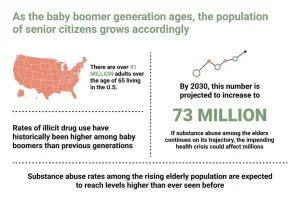
In some cases, excessive alcohol consumption may lead people to miss meals or medication, which can also make seizures more likely in people with epilepsy. Alcohol may negatively affect sleep, and sleep alcohol withdrawal seizure disruptions may trigger seizures. For people with epilepsy, alcohol may interact with epilepsy medications and worsen their side effects or make the medications less effective in preventing seizures.
- In early stages, symptoms usually are restricted to autonomic presentations, tremor, hyperactivity, insomnia, and headache.
- Remember you are facing a difficult challenge during alcohol withdrawal, but you are not alone.
- Table 2 gives a clinical description of alcohol withdrawal syndrome by severity and syndromes.[4,5,6] Figure 2 depicts the time course of symptom evolution.
- Get emergency medical help if you think you’re experiencing symptoms of AWD.
- Those who have a history of detoxification are more likely to experience seizures during alcohol withdrawal.
- If you don’t already have a supportive network, you can make new connections by joining social media communities dedicated to alcohol-free living.
Alcohol and antiseizure medications

Over time, however, the body builds a tolerance to alcohol, and a person may have to drink more and more to get the same feeling. Meanwhile, the brain is producing more and more neurotransmitters, making a person further imbalanced. If you drink alcohol heavily for weeks, months, or years, you may have both mental and physical problems when you stop or seriously cut back on how much you drink. Contact your doctor right away if you’re concerned about the symptoms you’re experiencing during alcohol withdrawal. Most symptoms will typically peak five days after they begin and will begin to decrease about five to seven days after they begin.

Complications of alcohol withdrawal delirium

The emerging understanding of the neurobiology of alcohol withdrawal suggests additional treatment approaches. It is estimated that 2 million Americans experience the symptoms of alcohol withdrawal each year (1). Generalized tonic–clonic seizures (rum fits) are the most dramatic and dangerous component of the alcohol withdrawal syndrome. The brain substrates that trigger these seizures are largely in the brainstem and, therefore, are distinct from those believed to be responsible for other clinically important seizure types.
Severe Symptoms
The main ways to prevent alcohol withdrawal are to avoid alcohol altogether or to get professional help as soon as possible if you think you’re developing alcohol use disorder. The main management for severe symptoms is long-acting benzodiazepines — typically IV diazepam or IV lorazepam. For mild alcohol withdrawal that’s not at risk of worsening, your provider may prescribe carbamazepine or gabapentin to help with symptoms. But treatment varies based on the severity of alcohol withdrawal and the likelihood that it could progress to severe or complicated withdrawal. When you stop consuming alcohol after prolonged, heavy use, your CNS can’t respond or regulate itself fast enough. Symptoms of alcohol withdrawal tend to peak 24 to 72 hours after your last drink.
Assessing Severity
Go to the nearest emergency room or call 911 (or your local emergency service number) if you or a loved one has any concerning symptoms of alcohol withdrawal. Within the first 24 hours of detox, you may experience nausea, anxiety and abdominal discomfort, while symptoms such as elevated heart rate and high blood pressure, confusion and excessive sweating tend to begin within 24 to 72 hours. Seizures typically occur within 12 hours of stopping the use of alcohol or reducing your intake. Withdrawal is your body’s response to stopping or cutting back on using an addictive substance like alcohol. It typically begins within a few hours of suddenly stopping or reducing your intake of alcohol.
Update on the Neurobiology of Alcohol Withdrawal Seizures
Since alcohol causes inhibitory effects on your brain, your brain may produce fewer of its own inhibitory effects. It may also increase excitatory effects in an attempt to balance brain chemistry. Once your brain chemistry has adapted to alcohol, you’ll feel the effects of chemical imbalance when you go several hours without a drink. Seizures may occur in around 5% of people with alcohol withdrawal syndrome.
However, it needs to be based upon the severity of withdrawals and time since last drink. For example, a person presenting after 5 days of abstinence, whose peak of withdrawal symptoms have passed, may need a lower dose of benzodiazepines than a patient who has come on the second day of his withdrawal syndrome. However, in the presence of co-morbidities shorter acting drugs such as oxazepam and lorazepam are used.
More on Substance Abuse and Addiction
If people withdraw from alcohol after heavy use, it is important to do so with medical supervision. A 2017 review found that a history of alcohol misuse increased the risk of post-traumatic epilepsy in people with traumatic brain injury. Alcohol-related seizures in those with epilepsy mostly occur due to alcohol withdrawal rather than the act of drinking itself. According to older research, alcohol consumption may have a causal relationship with seizures, and people who drink 200 g or more of alcohol daily may have up to a 20-fold increase in seizure risk. It is possible for chronic alcohol consumption to cause seizures in people without a history of seizures.
- If you or someone you know shows signs of delirium tremens, go to the emergency room immediately.
- Hypertension is common, and some doctors also prescribe beta blockers during withdrawal.
- AUDs are common in neurological departments with patients admitted for coma, epileptic seizures, dementia, polyneuropathy, and gait disturbances.
- It’s important to always talk with your doctor about whether it’s safe to consume alcohol with your medication.
1. Benzodiazepines
Alcohol withdrawal can include dangerous symptoms like seizures, which can come on suddenly and lead to serious consequences. The clinical presentation consists of a spectrum of signs and symptoms, including autonomic hyperactivity, tremulousness, restlessness, seizures, and potentially life-threatening alcohol withdrawal delirium. People with https://ecosoberhouse.com/s may also experience tremors, hallucinations, muscle spasms, and a rapid heart rate. The authors report that over 90% of alcohol withdrawal seizures occur within 48 hours after the last drink.

